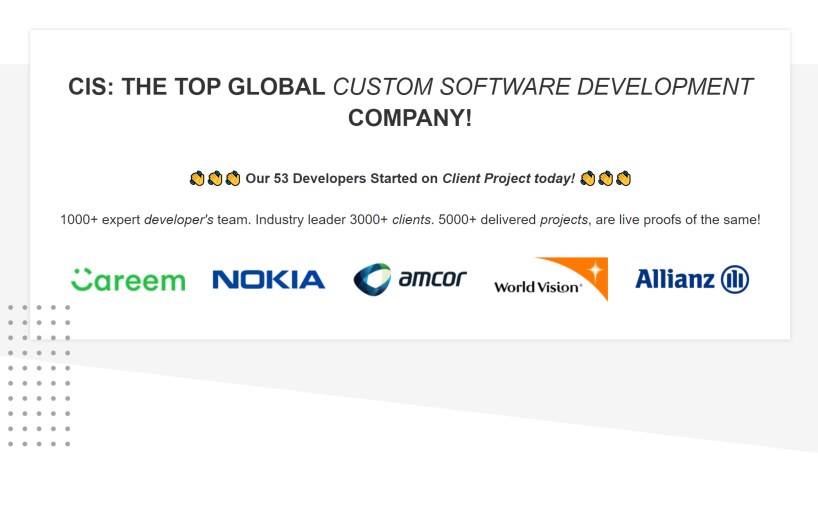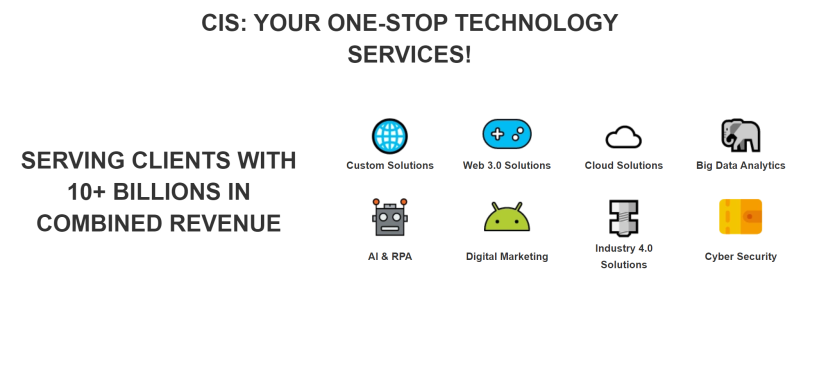Maximizing ROI: The Cost and Benefits of Adopting Oracle Erp For Data Management for Your Business
- Oracle ERP for data management - Detailed Analysis by Enterprise Solutions Experts
Request A Free Consultation - Why Use Oracle ERP For Data Management



Why Mid-size Companies and Enterprises needs Oracle ERP For Data Management:
Oracle ERP provides mid-size companies and enterprises with a comprehensive suite of integrated business applications that enable them to manage data more effectively. Oracle ERP includes features such as financials, supply chain management, customer relationship management (CRM), enterprise resource planning (ERP), human capital management (HCM) and analytics. This allows organizations to better understand their customers, streamline processes and improve decision making in order to increase profitability. Additionally, Oracle ERP offers scalability that can accommodate the changing needs of an organization over time while providing real-time visibility into operations across multiple departments.
Benefits of using Oracle ERP For Data Management in Mid-size companies and Enterprises:
1. Streamlined Financial Management:
Oracle ERP provides a single source of truth for financial data, allowing companies to access real-time information and make more informed decisions. It also helps reduce manual errors related to data entry or incorrect reporting.
2. Improved Supply Chain Visibility:
Oracle ERP offers an integrated view of the entire supply chain, from procurement to manufacturing and distribution, enabling companies to better manage inventory levels and optimize their processes accordingly.
3. Automated Business Processes:
By automating many of the tedious tasks associated with running a business-such as invoice processing or order tracking-Oracle ERP can help mid-size companies save time and resources that would otherwise be spent on manual workflows.
4. Enhanced Security & Compliance:
With built-in security measures such as role-based access control (RBAC) and audit trails, Oracle ERP enables businesses to comply with industry regulations while protecting sensitive customer data from unauthorized users or malicious attacks.
5. Scalability & Flexibility:
As businesses grow in size, they need solutions that can scale up along with them; luckily, Oracle ERP is designed specifically for this purpose, offering flexible deployment options that enable organizations of any size to take advantage of its features without worrying about outgrowing it too quicklyDetailed Features of Oracle ERP For Data Management for Mid-size companies and Enterprises:
1. Comprehensive Financial Management:
Oracle ERP provides comprehensive financial management capabilities, including accounts payable, general ledger, fixed assets and cash management. It also offers a wide range of features for budgeting, forecasting and analysis to help mid-size companies manage their finances more effectively.
2. Supply Chain Planning:
Oracle ERP provides powerful supply chain planning tools that enable mid-size companies to plan and optimize inventory levels in order to meet customer demand while minimizing costs. It enables them to track orders from suppliers and customers in real time as well as analyze the impact of changes on their supply chains.
3. Human Resources Management:
Oracle ERP helps mid-size companies streamline their HR processes by providing an integrated system for tracking employee data such as payroll information, benefits enrollment and performance reviews. It also allows managers to access important insights into workforce trends so they can make better decisions about staffing needs and resource allocation.
4. Project Portfolio Management:
Oracle ERP enables mid-size businesses to manage projects across multiple departments with ease by allowing users to create project plans with timelines, assign tasks based on skillsets or resources required, monitor progress against goals via dashboards or reports, adjust priorities if needed and much more . This ensures that projects are completed efficiently while staying within budget constraints set forth by senior leadership or stakeholders involved in the project's success .
5 Data Security & Compliance:
With its built-in security measures such as role-based access control (RBAC) , encryption technology , audit trails , user authentication protocols , etc., Oracle ERP helps ensure compliance with industry regulations like GDPR , HIPAA & SOX while keeping customer data safe from unauthorized access & misuse . Furthermore , it has advanced analytics capabilities which allow organizations to detect potential fraud quickly & take corrective action before any damage is done .Who are the Users of Oracle ERP For Data Management:
The customers using Oracle ERP for data management include large corporations, government agencies, and educational institutions. Some examples of companies that use Oracle ERP are Boeing, NASA, General Electric, Walmart, Coca-Cola, Microsoft, and the US Department of Defense.
How to ensure Data Security and Compliance with Oracle ERP For Data Management:
1. Implement a comprehensive data security policy:
Establishing and enforcing a comprehensive data security policy is essential for ensuring the safety and integrity of your Oracle ERP system. This should include procedures for user authentication, access control, encryption of sensitive information, regular backups, and periodic system reviews.
2. Utilize advanced authentication methods:
To ensure that only authorized personnel have access to your Oracle ERP system, you should consider implementing multi-factor authentication or biometric authentication methods such as fingerprint scanning or facial recognition technology.
3. Use robust password protection protocols:
Passwords are still one of the most common forms of user identification and authorization in any IT environment; however they can also be one of the weakest links when it comes to data security if not properly managed. To protect against unauthorized access to your Oracle ERP system, implement strong password policies which require users to use complex passwords that cannot easily be guessed or cracked by malicious actors using brute force attacks.
4. Monitor user activity on the network:
It's important to keep track of who is accessing what within your Oracle ERP system so you can quickly identify suspicious activities or potential breaches before they become major issues down the line. Therefore make sure all employee actions are logged and monitored regularly so any anomalies can be detected immediately before damage occurs.
5 .Enforce physical security measures :
As with any other type of business information technology infrastructure , physical security measures must also be taken into consideration when managing an Oracle ERP system . Ensure that all server rooms are locked at all times , restrict access only to authorized personnel , install surveillance cameras where applicable , etc .How Oracle ERP For Data Management can increase organization Productivity, Agility, and Profitability:
Oracle ERP for data management can increase organization productivity, agility, and profitability by streamlining processes such as inventory management, financial reporting, customer relationship management (CRM), supply chain optimization, and more. It enables organizations to access real-time information quickly to make informed decisions that will help them improve efficiency and reduce costs. Additionally, Oracle ERP integrates with other systems within the organization so that all departments have access to the same data which allows teams to collaborate more effectively while eliminating any potential redundancies in their workflow. Finally, it provides an automated system of tracking performance metrics which helps organizations identify areas where they need improvement or opportunities for growth.
How to Measure KPIs and increase Benefits of implementing Oracle ERP For Data Management in Mid-size companies and Enterprises:
1. Establish clear goals and objectives:
Before implementing Oracle ERP for data management, it is important to define the desired outcomes that you want to achieve in terms of increased efficiency, cost savings or improved customer service. This will help ensure that the system is implemented with a focus on achieving those goals.
2. Identify Key Performance Indicators (KPIs):
Once you have established your objectives, identify KPIs that can be used to measure the effectiveness of your implementation. Examples include customer satisfaction ratings, employee productivity levels and cost savings achieved through automation.
3. Monitor performance:
Regularly monitor performance against these KPIs to ensure that your implementation is delivering the expected benefits and making progress towards achieving its stated objectives.
4. Invest in training:
Ensure employees are adequately trained on how to use Oracle ERP for data management so they can make full use of its features and capabilities. This will help maximize the potential benefits from using this software solution as well as helping employees feel more comfortable with it over time which should lead to greater adoption rates across an organization's workforce .
5. Optimize processes:
Analyze existing business processes within an organization and look for ways in which they could be optimized by leveraging Oracle ERP's features such as automated workflows or advanced reporting tools etc.. Doing this should result in further improvements in efficiency levels and cost savings compared to manual methods of working without sacrificing quality or accuracy of results produced .How Oracle ERP For Data Management can increase Employee Morale in your organization:
Oracle ERP for data management can increase organization employee morale by streamlining processes and automating mundane tasks. This will free up time for employees to focus on more meaningful activities that add value to the organization, such as innovation or customer service. Additionally, Oracle ERP's reporting capabilities give employees better visibility into their performance, allowing them to track progress and make improvements quickly. Finally, Oracle ERP provides a platform for collaboration between departments which allows employees to work together towards common goals in an efficient manner. All of these features contribute to improved job satisfaction and higher morale among organization employees.
How Oracle ERP For Data Management is Better than its Competitors:
Oracle ERP for data management offers a comprehensive set of features and tools to help businesses manage their data more efficiently. Oracle ERP provides an integrated platform that enables organizations to streamline processes, reduce costs, and increase visibility into key performance indicators. It also helps organizations improve customer service by providing real-time insights into customer interactions and business transactions. Additionally, Oracle ERP is highly scalable, allowing businesses to meet the demands of growth without sacrificing functionality or security. Compared to its competitors, Oracle ERP offers superior customization options with pre-built integrations for third party applications such as Salesforce CRM or SAP Business Suite. Furthermore, it has robust analytics capabilities that enable users to gain greater insight into their operations and make better decisions faster.
Cost to Develop & Implemention of Oracle ERP For Data Management:
The cost of developing and deploying an Oracle ERP for data management will vary depending on the size, complexity, and scope of your project. Generally speaking, you can expect to pay anywhere from $50,000 - $1 million+ for a full-scale implementation. This cost may also include hardware and software licensing fees as well as consulting services.
Why outsourcing implementation services for Oracle ERP For Data Management is better for Mid-size companies and Enterprises:
Outsourcing implementation services for Oracle ERP for data management is a great option for mid-size companies and enterprises because it allows them to access the latest technology without having to invest in costly hardware and software. Additionally, outsourcing implementation services can save time and money since they are typically provided by experienced professionals who have expertise in the particular system being used. This can help reduce training costs as well as ensure that the system is implemented correctly. Finally, outsourcing these services also ensures that any issues or problems with the system can be quickly resolved without disruption to business operations.


